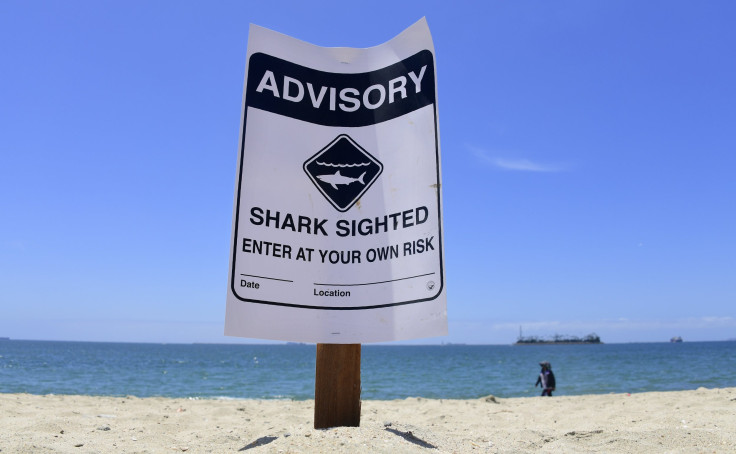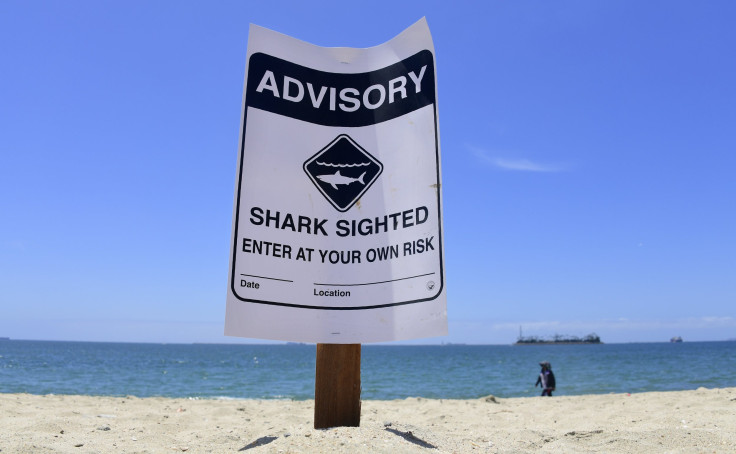Shark Attacks Man Helping Fisherman In North Carolina

A man attempting to help a fisherman bring a shark back to shore on a North Carolina beach had the tables turned on him Thursday when the shark bit him on the arm. The unidentified man went into the water near Johnnie Mercer’s Pier on Wrightsville Beach to help the fisherman bring the shark back to shore when he shark bit him, witnesses said.
“Someone caught the shark and as they were pulling it in, it whipped around and bit him on the arm,” Catherine Patton, an employee at the pier, told WNCN-TV. “There was a lot of blood, but they took him away in an ambulance.”
Read: Watch Sharks Surprise Tourists In Shallow Water At Florida Beach
Police and firefighters were called to the scene, but by the time they arrived, the man had been taken to a nearby hospital. It remained unclear what his condition was or what type of shark was involved in the incident.
An exchange student had his own encounter with a massive shark at the very same beach just a few months ago when, in March, a 1,000 pound, 12-foot great white shark nabbed a smaller shark he had hooked on his fishing line. Jannick Schroeder, a German student at the University of North Carolina at Wilmington, was fishing about 30 miles off the coast of Wrightsville Beach when the great white ripped the smaller shark in two, rammed into his boat and took a bite out of the engine, according to TWC News.
North Carolina is listed as one of the locations with the highest number of shark attacks in the nation, according to the International Shark Attack File at the University of Florida. From 2007 to 2016, there were a total of 33 attacks. Three occurred in 2016, though all were nonfatal.
Experts said in 2016 swimmers should expect to see an increase in the number of sharks thanks to more suitable conditions for the creatures. Increased temperatures caused by heat waves warm the water and increase the concentration of sharks in the area, Charles Bangley, a doctoral candidate studying sharks at East Carolina University told the Virginian-Pilot at the time. The sharks tend to follow prey that flock toward warm water, like whales and turtles.
“They like to be on the leading edge of a temperature change,” Bangley said. “It wouldn’t surprise me to see some summer species show up early.”
Read: Shark Attacks Mother Of 3, Bites Off Arm While Snorkeling In Bahamas
The state broke records in 2015 when eight people were attacked by sharks. None of the attacks were fatal, but some of the people involved lost limbs.
“I’m not going to predict the kinds of attacks you had last year in North Carolina,” George Burgess, director of the University of Florida’s shark research program, said in 2016. “But you’ll see sharks earlier than usual. If they find the going good, they’ll stay for a while.”

© Copyright IBTimes 2024. All rights reserved.






















